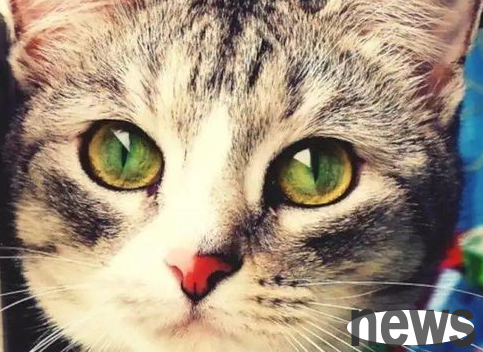Cats will have some small mistakes or bad habits in their lives, which requires unremitting training from the owner in the later stage to make the cat become well-behaved. Cats are famously sensitive and timid animals, so the training of cats must start with understanding the cat. As the saying goes, knowing yourself and your enemy can win every battle. Understanding cats will be very useful for training cats. When training a cat, you must first understand the cat and handle it easily!
1. Build trust and don't beat and scold
Cats may really like to have their own little secrets. As long as they are harmless, the owner does not need to pay attention to it (this does not include picking up dead animals from outside and hiding them in a few corners of the house, quietly grabbing a corner of the owner's favorite coat, and taking out the small fish in the tank while the owner is not at home...). Just like we ourselves have privacy that needs to be protected, cats do not like and are unwilling to explain everything to the owner. Besides, this is technically difficult to operate. Don't expect APPs such as "Cat Words and Cat Words" to become your translator. Too many people who have used it say that after the sentences expressing love are "translated" and conveyed by it, the cat is frightened.

As a master, you need to master and be proficient in maintaining effective communication with the cat, providing the help it needs, allowing it to feel your love, and being able to give kind reminders and corrections when it does something wrong. All communication needs to be friendly, including scolding, and grasping the quality is the key. For example, you just need to let it know that you don’t like something it does, and you must stop and scold it in time when things are going on, stop it when it hits, and never resort to violence. One of the differences between cats and dogs is that the saying "a filial son comes from a stick" may apply to some dogs, but for cats, once they are physically punished, they will lose trust in humans due to fear and lead to personality changes. For self-protection, they may also perform more intense behaviors.
When we do something wrong without knowing it, we always hope to be understood and treated friendly, let alone sensitive cats? Becoming someone they can trust and deserve to entrust is the first step we need to do. Only by building trust can communication and training become possible.
2. Combining rewards and punishments with standardized training language
So, do cats have to show friendship and even give snacks to show consideration when doing something wrong? A big mistake. Being kind-hearted includes eliminating violence and not corporal punishment, but it is definitely not a mistake that you should be praised or even rewarded. Don’t be too corrected. Spending is also not good for cats unless you want the cat to become your big boss and be able to obey it. Otherwise, when the cat does something wrong, please scold and correct it in time.
Cats and humans are not in the same discourse system and behavioral norms, and they have no concept of what can and what cannot be done. For example, scratching your beloved expensive leather sofas may be just a small game or a midday exploration. If you catch the damage while it is in progress, please stop and scold them in time. But if you just discover the "good thing" it does afterwards, please hold back your anger, pretend nothing happened, and silently clean up the scene. Because the cat has long forgotten what it has done. If you scold it at this moment, it seems to be unreasonable. "The owner loves to lose his temper, it's really inexplicable." We must seize the current situation and never scold us during the "crime" process. If we cannot catch the current situation, the master might as well treat this as a small training of endurance.
It is best to choose words that are easy to identify and remember in pronunciation, such as "No" and "No". The words that scold cats are best unified among family members. Don't you use "No", sister likes to say "No", mother will say "Depend to what you do!" and father will "stop"... In this way, the cat will be very confused, "What's the situation? What exactly does this family want to say?" Select one or two words and increase the volume appropriately, and the cat will quickly understand what you or you mean and terminate the wrong behavior.

When training, you should also pay attention to the combination of rewards and punishments, and the main focus should be on rewards. The reward can be a few words of praise or snacks. Generally speaking, the former is the main and the latter is the auxiliary. The same reward words should be controlled within two or three to avoid trouble the cat, such as "be good" and "awesome", and try to speak them in a gentle and appreciative tone. Cats are as sensitive to praise as punishment. They praise them immediately whenever they do the right thing. Over time, they will form fixed behavioral habits. They will pay attention to praise as much as possible and scold as little as possible. This process varies according to the different personalities of different cats. However, as long as you have a winning heart and are full of love, training a "five good model domestic cats" is not a dream.
In many cases, we don’t understand the world of cats. They are not just for eating and playing. Cats are also very emotional animals. Many times, they need the company and care of their owners. Perhaps the bad things they do are just to attract your attention.
